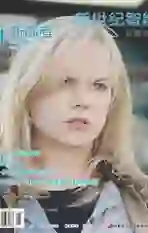将来进行时和过去将来时之特点分析
2018-11-20秦艺
秦艺
我们先来看两个句子:
1. -Could I use your car tomorrow morning?
-Sure. I_______(write) a report at home.
2. Jane can't attend the meeting at 3 0'clock this afternoon because she______(teach) a class at that time.
一、运用将来进行时的时间特点
通过简单分析,同学们会很快发现这两句都在描述将来的动作,好像应该用一般将来时填空。但是大家需要知道,时态题的考查应根据具体的时间状语。第一句的时间状语为tomorrow morning,而不是tomorrow;第二句为3 0'clock this afternoon而不仅是this afternoon。这种表示将来某个时刻会发生的动作,英语中会用will be/be going to be/shall be+ doing来表示,我们称之为“将来进行时”。今天,我们来谈谈英语中的常见语法现象:将来进行时。
将来进行时通常用于以下场景:1.表示在将来某一时刻或某一时间段正在进行的动作;2.表示根据计划、安排或预测要发生的动作,此时一般要有具体的时间状语;3.表示有礼貌地询问对方打算,还可表示亲切或委婉的语气。
例如:Make the best of your precious time and study harder-this time next year you will beenjoying the colorful campus life in your dream university!好好利用当下的美好时光,努力学习!明年这个时候你一定会在你向往的大学里享受多彩的校园生活!
After you take the medicine,you will be feeling much better.吃了药以后,你就会感觉好多了。
When shall we be meeting again?何时我们将会再见面?
将来进行时的常见时间状语有:soon,this time next week,tomorrow morning等等。有时同样的时间状语会用一般将来时,下面谈谈将来进行时和一般将来时的区别,请大家比较下面的句子:
1,将来进行时表示将来某时正在进行的动作;一般将来时表示将来某时将要发生的动作。
例如:What will you be doing this time next week?你们下周这个时候在干什么?
What will you do tomorrow?你们明天干什么?
2.两者均可表示将来,但用将来进行时语气更委婉。
例如:When will you finish decorating the room?你何时完成装饰房间?(直接询问,如上司对雇员)
When will you be seeing Mr. Zhang?你什么时候见张先生?(委婉的询问,如下属对上司)
3.一般将来时不仅表示“将来”,还可表示“意志、意愿”等。
例如:1 will try my best to study hard.我将尽全力努力学习。(表意愿)
We will be studying Chemistry next semester.下学期我们将学习化学。(只是单纯表示未来情况)
真题演练
1.-Guess what, we've got our visas for a short-term visit to HK this summer! -How nice! You_______a different culture then!
A. will be experiencing
B. have experienced
C. have been experiencing
D. will have experienced
2. Jill will not be able to attend the meeting tonight because_______
A. he must teach a class
B. he will be teaching a class
C. he teaches a class
D. he will have been teaching
3. We_______a basketball match at five tomorrow afternoon.
A. will have watched
B. watch C. can watch
D. will be watching
真題解析
1.A。根据答语中的then,第二个人表达的意思是“你那时将会体验一个不同的文化”,即未来某一个时刻将发生的情况,故用将来进行时。
2.B。根据句义,Jill因为何种原因今晚将不会参加会议,说明他要做的事情也是发生在未来的,并且是开会的时候,故用将来进行时。
3.D。根据时间状语at five tomorrow afternoon,所以用将来进行时。
二、运用过去将来时的场景特点
过去将来时表示从过去某时间看将要发生的事情,运用的场景大多在宾语从句中,也可以用来表示过去的倾向或过去经常发生的事情。常见形式有:would do; was/were going to do; was/were todo; was/were about to do等等。具体可用于以下情形:
1.表示从过去某时间看将要发生的动作,或存在的状态。
例如:He was sure that he would win the final victory.他确信他可以赢得最后的胜利。
2.暗示一种过去的打算。
例如:1 was going to leave,but then it rained.我本来打算离开的,但那时候下雨了。
3.暗指一种过去的安排。
例如:1 was meeting them in urban area the next day.我第二天要在市区跟他们见面。
4.表示过去注定将会要发生的事情。
例如:The journey that was to change Leo's life started in July that year.余改变利奥一生的旅行开始于那年七月。
真题演练
1. -Alice, why didn't you come yesterday?
-l_______,but I had an unexpected visitor.
A. had
B.would
C.was going to
D.did
2. We were all surprised when he made it clear that he____office soon.
A. leaves
B.would leave
C.left
D.had left
3. As I_______the next day, I went to bed early on Thursday evening.
A. was leaving
B. had left
C. willleave
D. left
4. I_______to start off when it began to rain.
A. was
B. was able
C. wanted
D. was about
真題解析
1.C。根据语境,双方谈论昨天发生的事情。意思是“过去打算”,故用过去将来时。
2.B。根据句中谓语动词were说明描述的是过去的事情,soon说明应用过去将来时。
3.A。根据时间状语the next day,应该用过去将来时。was leaving用进行时表将来。
4.A。此处为对句型be about to do... when...的考查,意为“正要做某事时……突然……”,同学们应熟记。
